Drug and alcohol screening can be done for several reasons. Some employers run an alcohol and drug screening before hiring new employees or, depending on the type of work, on a regular basis. It can also be used if there is a suspicion of alcohol or drug use. It’s used by doctors, the military, and in law enforcement as well. In order to do this, consent must be given by the individual to allow the screening. This is done using a Drug/Alcohol Testing Consent Form.
What is Drug and Alcohol Testing?
Drug testing can be done using urine, blood, hair, and other physical samples to determine if drugs or alcohol are in a person’s system. There is a wide array of illegal drugs, so it can be hard to catch all of them.
As a result, the Substance Abuse and Mental Health Services Administration suggests screening for five common types of drug:
- Amphetamines (class of stimulant, such as speed and meth)
- THC (a psychoactive element found in marijuana)
- Cocaine (considered a hard drug)
- Opiates (consider a hard drug)
- Phencyclidine (also known as angel dust and PCP)
Other screens can include anabolic steroids, barbiturates, ecstasy, and inhalants, but those tests are more expensive.
What is a Drug / Alcohol Testing Consent Corm?
This is a document that allows a prospective or current employer to screen employees and potential employees for the use of illegal drugs and alcohol. While these tests can’t be run without consent from the employee, refusing to do so can, by law, result in the termination of their job or rejection of their application.
The form protects the employer from liability should an injury or accident take place by a worker who was under the influence at the time. This is a common form used in jobs where vehicles or heavy machinery is used. The form should discuss methods of testing and confidentiality. The consent form is jurisdiction neutral, and other requirements may be imposed by state or local law.
Free Consent Forms
A drug/alcohol testing consent form is a document used to obtain an individual’s permission to conduct testing for substance abuse.
These forms play a crucial role in ensuring compliance with legal requirements and protecting the rights of both employers and employees.
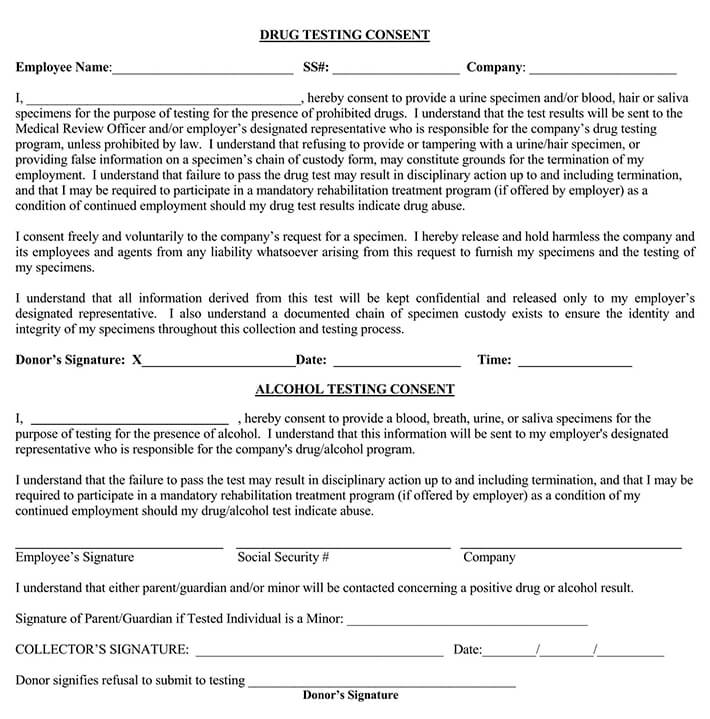
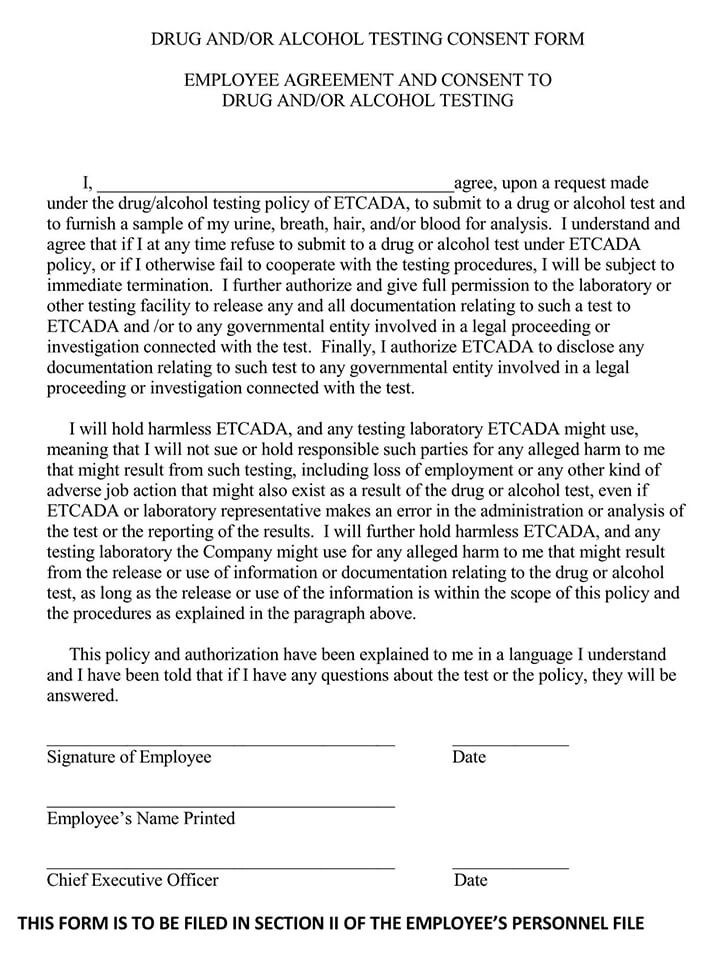
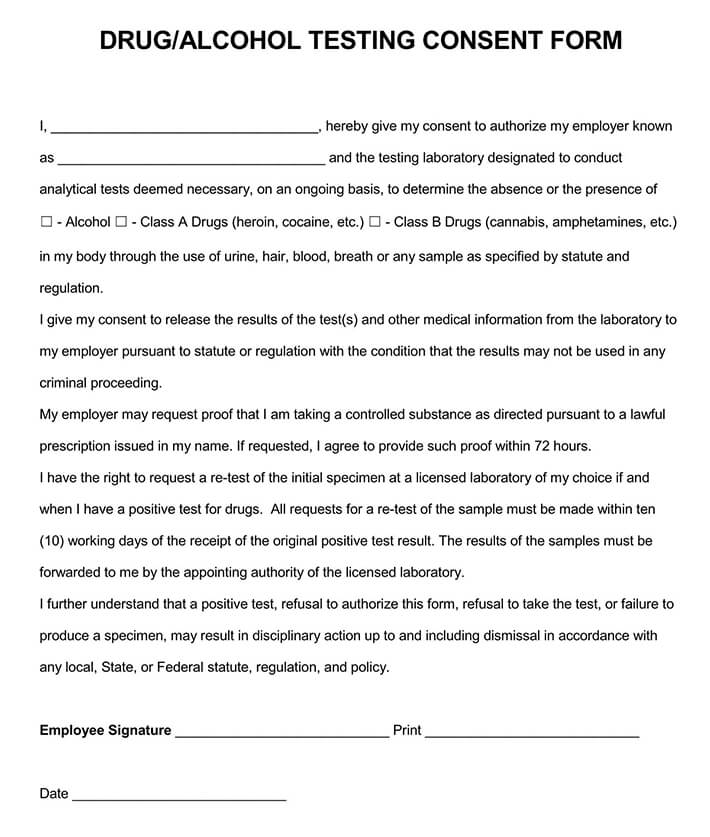
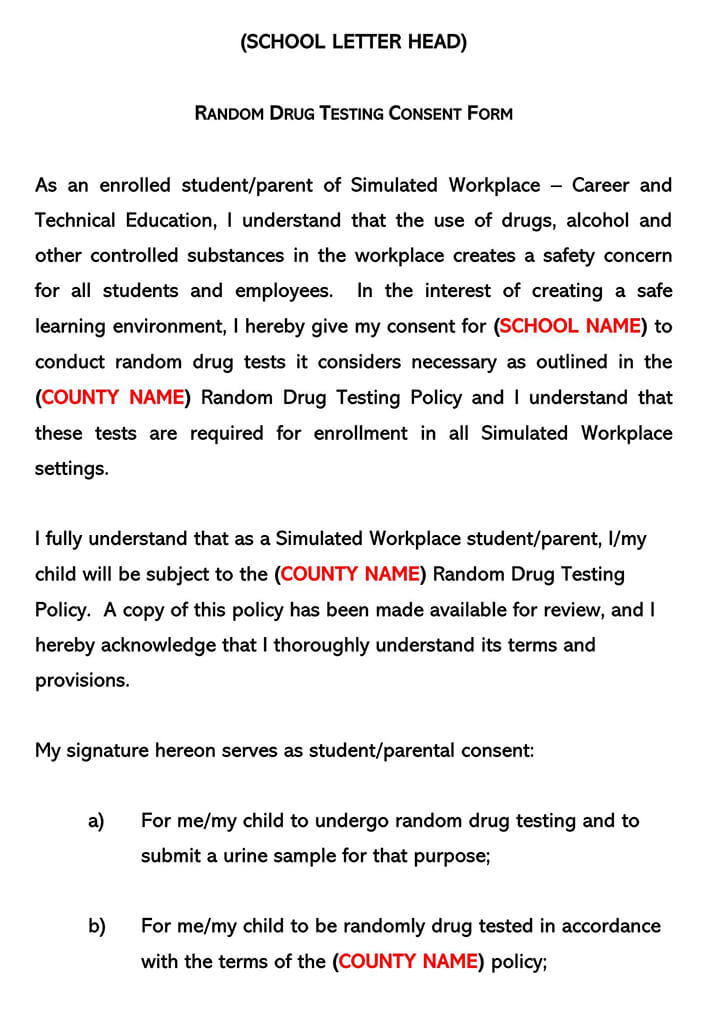
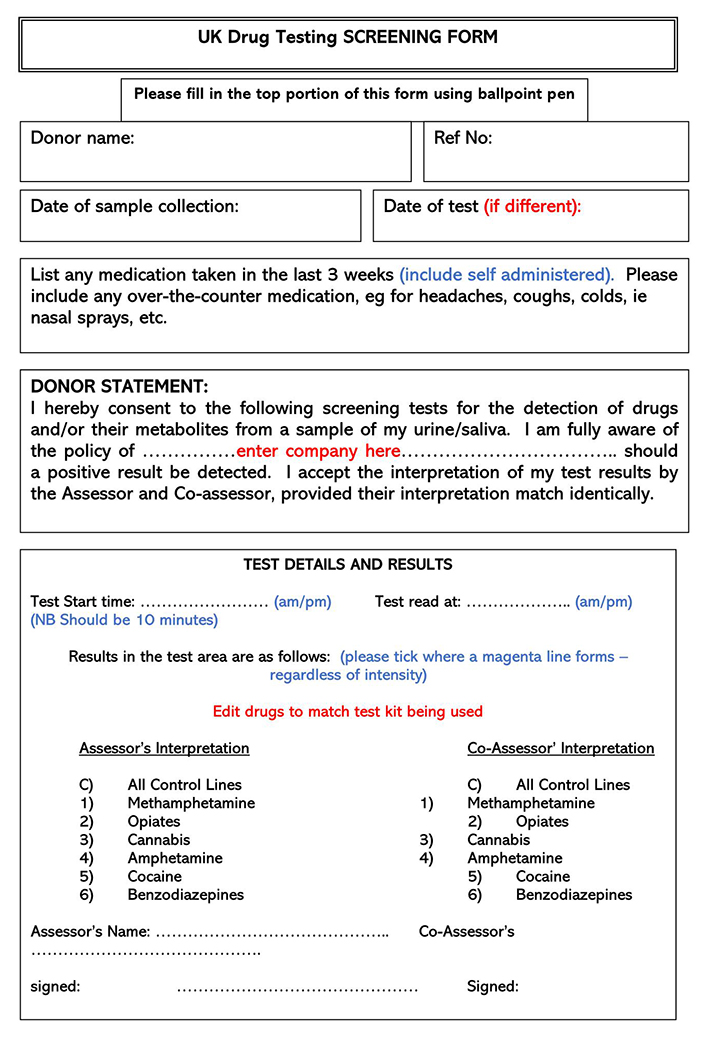
How Often Can Employers Do Drug Testing?
Drug testing in the workplace can be done at the start of employment for everyone, done at random intervals, or done as needed if an employee is suspected of being under the influence, which needs a reasonable cause.
Random drug screening has become a popular option because it deters employees from using illegal drugs. There are regulations that state an employee cannot just be chosen on a whim, and the selection process for random testing needs to be fair and truly random.
Drug/Alcohol Screening and the Law
Federal laws only have a say in drug testing for any industry that is heavily regulated by the federal government. This would include military contracting, nuclear energy, and the transportation industry. It is generally down to the state and local governments to regulate drug testing in the workplace. These rules can apply depending on whether the request is for an existing employee or an applicant.
Applicants
In general, employers can test an applicant for drugs by state laws. They need to follow the rules set out by the state regarding giving notice and procedures that prevent inaccurate samples and discrimination.
Some state regulation examples would be:
- Making sure the applicant is aware that drug screening is part of the application process.
- The employee has been offered a job that is dependant on them passing a drug test.
- All applicants are tested the same way for the same job.
- All drug testing is done by a state-certified laboratory.
Current employees
When it comes to testing current employees, there are some legal constraints. Some states won’t allow for a company to perform a blanket drug test or random tests. Instead, the testing needs to be focused on one person, and it needs to be because there is reason to believe they are using drugs. This is especially important in jobs that carry a higher risk of damage or injury should the employee be under the influence of drugs or alcohol.
Refusing to take a drug test
You do have the right, as an employee, to refuse a drug test request. However, you can be fired for refusing and, in some states, can be denied getting employment benefits if you lost your job as a result of refusing to take a drug test.
What is Reasonable Suspicion?
For an employer to request a drug test, they have to have reasonable suspicion that their employee is under the influence of drugs or alcohol. There are some states that have set a few guidelines regarding reasonable suspicions, such as:
- The employee is directly observed using drugs or sees symptoms of it, such as having uncoordinated movement, slurred speech, inappropriate responses to questioning, erratic behavior, or a marked deterioration in their work performance.
- The employee has been reported of drug use by a credible and reliable source.
- There is evidence against the employee showing they have tampered with current drug test results
- An employee has caused or contributed to causing an accident in the workplace.
- There is evidence that the employee has possessed, used, solicited, sold, or transferred drugs while they were working or at work.












